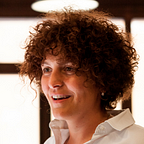Unleashing the power of Living Heritages
From the Mediterranean Diet to Global Classrooms the Integral Human Development for a Sustainable Future.
The UNESCO World Conference on Culture and Arts Education 2024 now underway in Abu Dhabi, represents a landmark event, assembling global leaders to adopt a UNESCO Framework for Culture and Arts Education. This initiative aims to integrate cultural dimensions into educational systems, emphasizing the development of skills and competencies that align with the demands of contemporary society. Building upon the foundational Road Map for Arts Education and the Seoul Agenda, the conference promises to be a collaborative platform for sharing practices and fortifying a global alliance in culture and arts education. The participatory process that led to the Framework’s development signifies a collective commitment to embedding cultural dimensions within educational systems, fostering competencies that align with contemporary societal challenges.
With the Pollica Secretariat of the Network of the Emblematic Communities of The Mediterranean Diet , together with the UNESCO Chair on Intangible Cultural Heritage and Comparative Law, University of Rome Unitelma Sapienza (Italy), Didyma Public Education Center, Didyma District Directorate of National Education (Turkey), Regional Centre for the Safeguarding of Intangible Cultural Heritage in South-Eastern Europe under the auspices of UNESCO (Bulgaria) in partnership with, the UNESCO Chair on Intangible Cultural Heritage in Formal and Informal Education, Ankara Haci Bayram Veli University (Turkey) and the Board of Trustees, Syrian Trust for Development, Syria, we had the privilege to co-organize a side-event that fostered a rich exchange of insights on integrating intangible cultural heritage in education.
This event brought together academics and practitioners from diverse cultural and professional backgrounds worldwide, sharing their experiences and emphasizing the critical role of formal, virtual, and informal education in valorizing intangible cultural heritage. A focal point of discussion was the application of new technologies to enhance accessibility and inclusion within heritage educational processes, underscoring a collective commitment to preserving our cultural legacies through innovative educational strategies.
The Mediterranean Diet: A Paradigm of Living Heritage for Sustainable Growth
The Mediterranean Diet, deriving from the Greek word “Diaita,” meaning “Way of Living,” epitomizes a holistic approach to nutrition that is deeply intertwined with cultural practices, environmental stewardship, and community well-being. This diet, recognized as an intangible cultural heritage by UNESCO, underscores the importance of biodiversity, prosperity, fertility, and longevity. The knowledge keepers within our Emblematic Communities play a pivotal role in transmitting this heritage. The Secretariat of the Seven Emblematic Communities managed by the Mediterranean Diet Study Center of Pollica, is dedicated to safeguarding this living heritage through innovative educational initiatives, emphasizing the diet’s foundational role in fostering sustainable growth.
The Role of Knowledge Keepers
Knowledge keepers of the Mediterranean Diet play a crucial role in preserving this intangible heritage. They are the custodians of age-old practices and wisdom that underpin the diet’s principles. By transmitting knowledge across generations, they ensure the continuity of practices that contribute to biodiversity, prosperity, fertility, and longevity.
The Work of the Seven Emblematic Communities
The seven emblematic communities of the Mediterranean Diet — Chefchaouen, Pollica (Cilento), Koroni, Agros, Soria, Tavira, Brač & Hvar — are living examples of this heritage in action. These communities exemplify how the diet’s principles are woven into the fabric of daily life, promoting sustainable agriculture, fishing practices, and communal dining. The Secretariat of the Seven Emblematic Communities spearheads initiatives to safeguard this heritage, integrating traditional wisdom with innovative educational strategies to foster a deeper understanding and appreciation of the Mediterranean Diet.
Innovative “Paideia” Educational Frameworks from the Mediterranean Diet Study Center “Angelo Vassallo”
The Pollica — Paideia Campus born under the visionary leadership of Sonia Massari, serves as a beacon of innovative educational practices. Here, the integration of the Mediterranean Diet’s principles into curricula serves not only as a means of preserving cultural heritage but also as a model for developing sustainable lifestyles. These educational frameworks highlight the importance of hands-on learning, community engagement, and the intergenerational transmission of knowledge, showcasing how traditional wisdom can inform contemporary educational strategies.
The Imperative of Safeguarding Living Heritage
The preservation of living heritage, such as the Mediterranean Diet, is essential for maintaining cultural diversity, environmental sustainability, and social cohesion. Education plays a critical role in this endeavor, offering a platform to bridge past and present, ensuring that traditional knowledge and practices are passed down to future generations. The initiatives at the UNESCO World Conference and the Pollica Paideia Campus illustrate the profound impact of integrating living heritage into educational systems.
Adopting the Mediterranean Diet as a lifestyle epitomizes a commitment to sustainable living, reflecting a deep understanding of the interconnectedness of health, environment, and culture.
The phrase “Eat Well, Stay Well, Save the Planet,” championed by Stefano Pisani (the Mayor of Pollica), encapsulates the essence of this vision.
It underscores the importance of nourishing both ourselves and our planet, fostering a future where education and living heritage go hand in hand to create a more sustainable and thriving world.
The Future Food Institute is an international social enterprise and the cornerstone of the Future Food Ecosystem, a collection of research labs, partnerships, initiatives, platforms, networks, entrepreneurial projects and academic programs, that aims to build a more equitable world through enlightening a world-class breed of innovators, boosting entrepreneurial potential, and improving agri-food expertise and tradition.
As we set our sights on the future, there’s a mission that will steer our efforts in the years ahead: “Reimagining FOOD as the catalyst that fosters FERTILITY, PROSPERITY & LONGEVITY of LIFE on EARTH.” It’s not just about understanding and shaping the future of food, but also harnessing its potential to uplift the very essence of life on our planet. By empowering millions and transforming communities, we are poised to make this vision a reality. Let’s together champion this cause, and, with conscious action and unwavering dedication, realize the change we seek.
Learn more at www.futurefoodinsitute.org, join the conversation on Facebook, Instagram, Twitter, LinkedIn, or YouTube. Or attend a program through the FutureFood.Academy!
